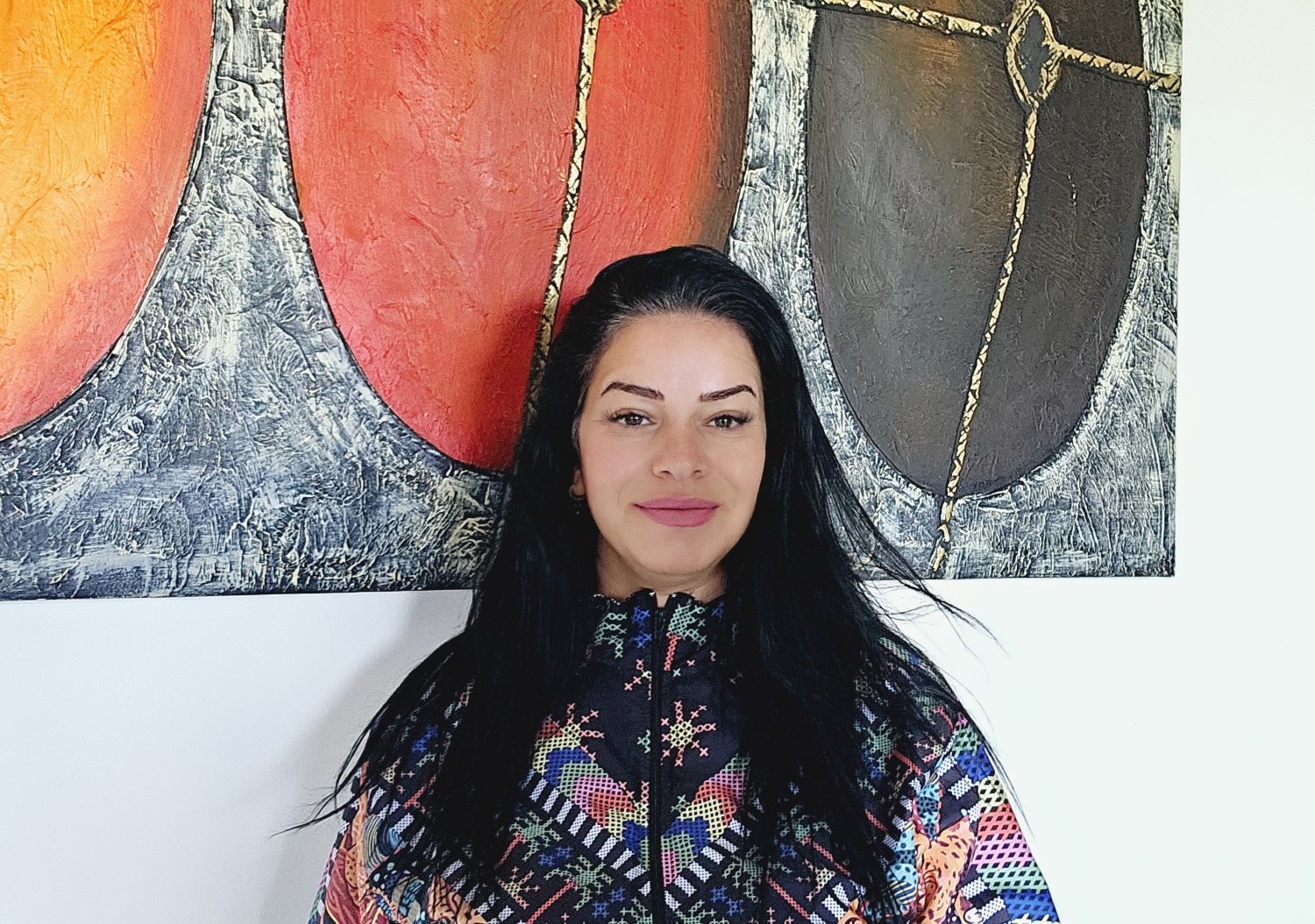In the words of Fadia Jomaa: “I want to send a message of love and peace to all women. I want them to know that when this war ends, they will look back and see how strong they were”
Date:
In Tyre, South Lebanon, where clashes and attacks have been escalating across the Blue line[1] and beyond since the outbreak of the conflict in Gaza, women peacebuilders are among those being displaced. Fadia Jomaa is a journalist, environmental activist and mediator engaged in a UN Women regional project “Women, Peace and Security in the Arab States Phase III”, implemented in collaboration with International Alert and the Professional Mediation Center at University Saint Joseph. Hers is one of ten local women’s mediation networks that are working to prevent and resolve conflicts and contribute to sustainable peace through policy change and community-level action, with funding from the Government of Finland.

“A week ago, we woke up to the sound of intense airstrikes. I was at home with my children and made the quick decision to leave [Tyre] for Saida, where my parents live. The journey was one of the hardest, under heavy fire, and a missile landed just 200 metres from our car but did not explode. It took us four hours to reach my sister’s empty house, where I made sure my children were settled in. That same night, I joined as a volunteer at a public school and with a crisis cell made up of activists from all over Lebanon via WhatsApp to help the displaced find shelter and meet their basic needs.
The situation has been, and remains, catastrophic, with ongoing displacement from various areas and continuous strikes. Personally, I’ve gathered my strength to help others and provide shelter. As part of a network of internal mediators, we held several meetings and decided to move our initiatives to displacement centres, focusing on studying the needs of the displaced to provide support and mitigate conflicts.
I am going through extremely difficult times, especially after a building in Saida, housing both local residents and some displaced people, was targeted, resulting in a horrific massacre that claimed the lives of [my] relatives. Despite this tragedy, I quickly pulled myself together and returned to my volunteer work immediately. There is no time for grief or tears.
The conflict has directly impacted our mental and financial stability. We constantly monitor the news, filled with anxiety and uncertainty. Movement is restricted, and my family’s mental well-being is strained. Within the community, we have experienced a lack of safety and protection measures. Unemployment and mental health risks have soared. Violence has drastically increased, while basic needs like food and shelter remain significant concerns.
Women are shouldering a disproportionate burden in this context. Their responsibilities to support their families have grown, often leading to conflict between husbands and wives. In some cases, economic hardships and job loss among women have contributed to an increase in domestic violence against women and children.
Before the project with UN Women, it was challenging to have successful dialogues with key stakeholders. The skills I gained have empowered me to continue my mission and not give up on initiatives I’ve started, allowing me to use mediation to achieve my goals. The skills I acquired also allowed me to navigate and engage with different cultures and backgrounds more effectively.
I’ve also been able to work closely with local communities to create shared benefits. I [was] developing a support programme for displaced Lebanese in the Tyre area, which includes sessions on active listening, communication and emotional expression for 45 children (ages 6–12) and their caregivers. Recently, I facilitated similar sessions with 10 women and three children, focusing on emotional distress and expressing feelings.
This wouldn’t have been possible without the capacity-building I received from UN Women. The sustainability of their intervention is evident in the work I continue to do. Before the mediation project with UN Women, I was often defensive and aggressive in conflicts. You can even notice a difference in my journal writings before and after the project.
Through mediation, I’ve learned to apply active listening, simplify issues, and seek common ground between myself and others. I now prioritize nonviolent communication. Mediation has fundamentally changed how I approach situations, making me more culturally and conflict-sensitive. I also prioritize safety and protection measures in my work.
I want to send a message of love and peace to all women. I want them to know that when this war ends, they will look back and see how strong they were, and how their strength kept their families and communities going. Each person has the potential to make a difference within their community. We just need to look within ourselves to find that strength.”
[1] [1] The Blue Line, stretching for 120km along Lebanon’s southern frontier, is a “line of withdrawal.” It was set by the United Nations in 2000 for the practical purpose of confirming the withdrawal of Israeli forces from the south of Lebanon.